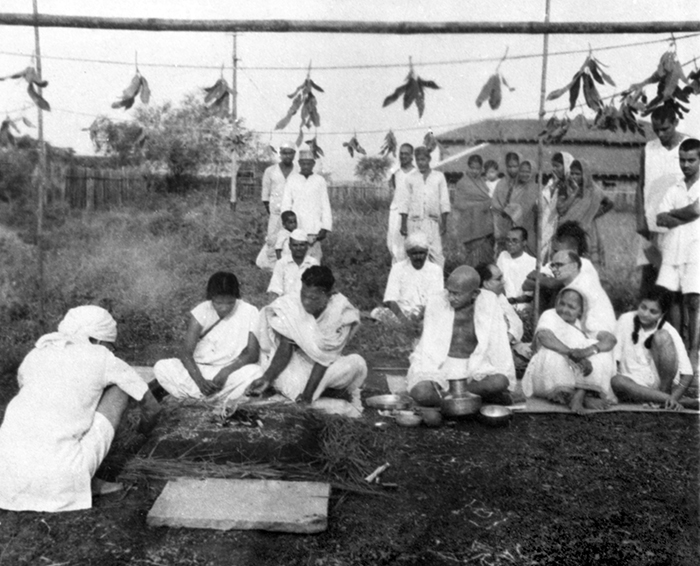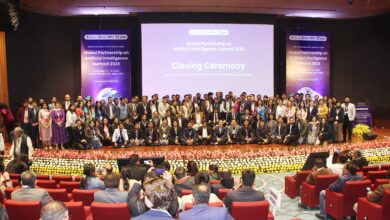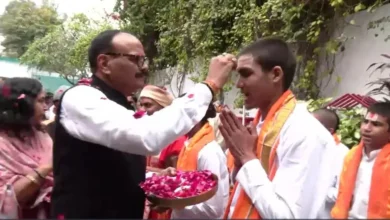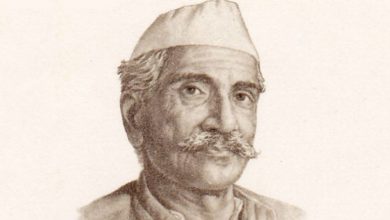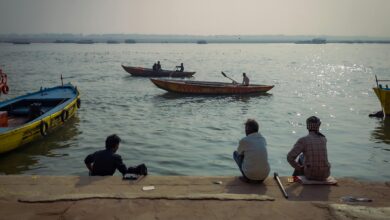Kasturba Gandhi’s crusade against Untouchability
Siby K. Joseph
The general impression about Kasturba Gandhi is that she was not much happy with Gandhi’s approach of equal treatment of untouchables as one par with family members. It was mainly due to Gandhi’s own description about her on two occasions in his Autobiography or the Story of My Experiments with Truth.
The first one occurred in their Beach Grove Villa in Durban, South Africa in 1898.This incident perhaps gives an impression that Kasturba was not happy to clean chamber-pots of one of the clerks who was a Christian, born of Panchama parents.
He wrote “My wife managed the pots of the others, but to clean those used by one who had been a Panchama seemed to her to be the limit, and we fell out. She could not bear the pots being cleaned by me, neither did she like doing it herself. Even today I can recall the picture of her chiding me, her eyes red with anger, and pearl drops streaming down her cheeks, as she descended the ladder, pot in hand.”
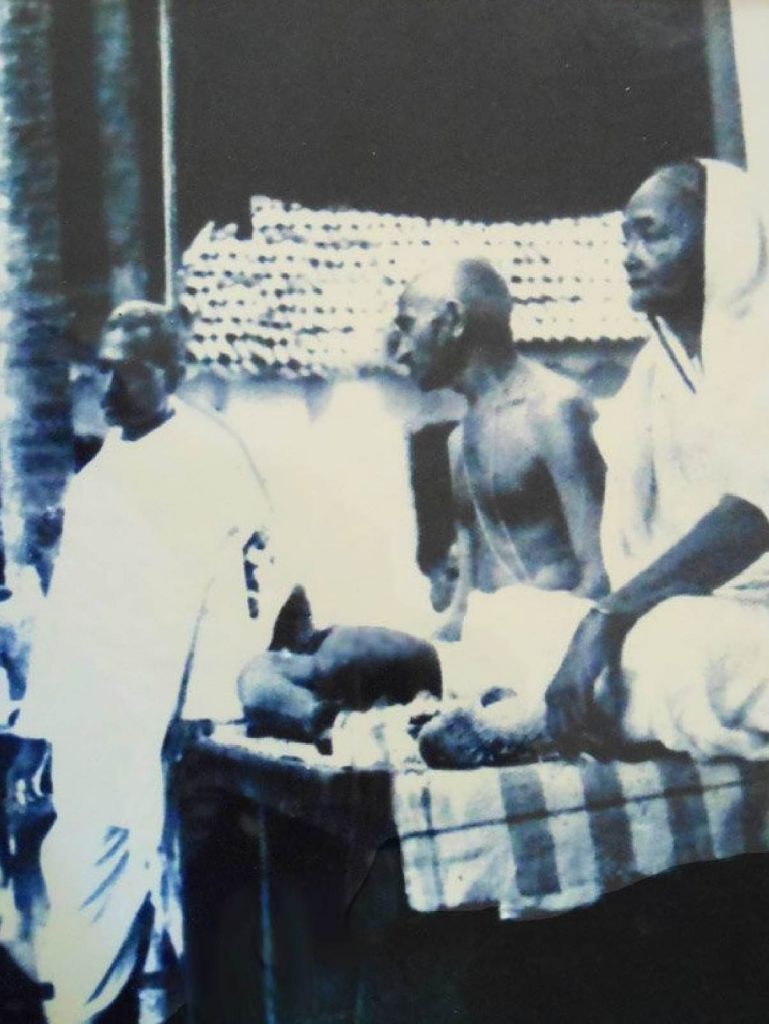
The second one was about the admission of an untouchable family consisting of Dudabhai, his wife Danibehn and their daughter Lakshmi, then a mere toddling babe in Satyagraha Ashram at Kochrab in 1915. Gandhi wrote “Just as there was a storm outside so there was a storm in the Ashram itself.
Though in South Africa untouchable friends used to come to my place and live and feed with me, my wife and other women did not seem quite to relish the admission into the Ashram of the untouchable friends. My eyes and ears easily detected their indifference, if not their dislike towards Danibehn. The monetary difficulty had caused me no anxiety, but this internal storm was more than I could bear.”
Is this initial reluctance on the part of Kasturba to treat even untouchables as members of her own family continued in her later part of life? Or she treated untouchables with some sort of reservation? In order to understand her approach towards untouchability we have to analyze the later part of her life though not properly documented like that of Mahatma Gandhi.
In 1915, the untouchable family who stayed with Gandhi and Kasturba at Kochrab returned to Bombay. Lakshmi was later adopted as daughter of Gandhi family when she was about five years old in 1920-21. It would not have been possible for Gandhi to adopt her without the consent and support of Kasturba. How was Kasturba’s relationship with her? An interview conducted by Tushar Butt in 1968 with Lakshmi viz. “The Mahatma and his Harijan Family” throws light on it.
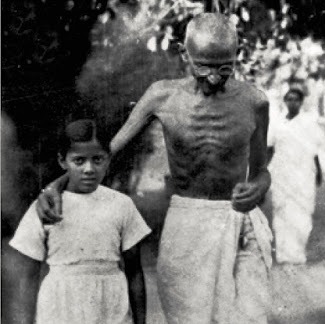
In the interview Laksmi recollected “Around 1920-21, When I was five, Gandhiji had come to Bombay. He called my parents and told them he would now take me with him to the Sabarmati Ashram. When I came to Ashram I did not know anybody. But I remember that Devadas used to take care of me. Kasturba also was very kind. She would bathe me and comb my hair. I became Gandhiji’s Harijan daughter.”
From this description it is clear that even in her early days with Gandhi family Kasturba was very kind to her and treated like a daughter. Lakshmi stayed in the Ashram for nearly 14 years till her arranged marriage with a worker in the Swarajya Ashram at Bardoli viz.Marulayya alias Marutidas, who was a south Indian Brahmin.
Even after the marriage, the daughter mother relationship between them continued. She said “Every year, like any other parents, Gandhiji and Kasturba would write to me to come and stay with them. Bapu used to play for a long time with my son when I stayed with them. When I returned to my husband’s house from Bapu’s camp, Kasturba would always give me something in the traditional fashion of mothers giving something to daughters.” This shows Kasturba’s affectionate relationship with adopted daughter and Lakshmi considered Kasturba as her own mother. Gandhi himself admitted this in 1947 while speaking to a visitor from South Africa. “… she loved the Harijan girl as much as she loved Manu or Devdas’s Tara” Thus it is clear that she overcame the initial reservations on this issue and became one with untouchables in the later part of her life.
This approach was not limited to the case of Lakshmi alone; she had no hesitation to talk against untouchability publicly whenever she got the occasion. In 1922, Kasturba presided over the Gujarat Provincial Conference. Presiding over the Gujarat Provincial Conference she condemned the practice of untouchability. In October 1922 Kasturba Gandhi presided over Ajmer District Political Conference. In her written speech she said “… I pray to you all and especially that of the Hindu brothers and sisters.
It is our religious duty to adopt our untouchable brothers. Even though everybody understood this matter, adequate efforts have not been made in this regard. After three months, if I could convey to Gandhiji that the untouchability is completely removed from the province of Ajmer, then his happiness would be equivalent to the attainment of Swaraj.” Her salvo against untouchability continued throughout her life. She was always with Gandhi in his fight against caste and untouchability. Kasturba accompanied Gandhi during his Kerala visit in March 1925. The prime focus of his visit was the Vaikom Satyagraha which was for the entry of the lower castes to public roads leading to the Sri Mahadeva Temple in Vaikom which is presently in Kottayam district of Kerala. Untouchability was the main reference point of Gandhi’s visit to Kerala.
Gandhi along with Kasturba visited the Sabari Ashram at Akkathethara in Palakkad on March 18,1925 as a part of his campaign against untouchablity. It provoked some caste Hindus and they planned to stage a black flag demonstration at the Olavakkode railway station. T R Krishnaswamy Iyer, who founded the Sabari Ashram for the education of untouchable students, came to know about the proposed demonstration at Olavakkode.
He gathered a group of people at Akkathethara to wave red flags to stop the train, a few kilometers before the Olavakkode station in which Gandhi and Kasturba were supposed to alight. He was successful in his effort and brought them safely cutting through paddy fields directly to the Sabari Ashram. It is pertinent to note that it was during this visit Kasturba Gandhi declared the entry of lower caste people to Kalmadam Sree Bala Ayyappa Temple by opening the temple’s door and taking harijans to enter the temple along with her.
It was owned by Padmanabhan Nair alias Appu Yajaman who donated the land for Sabari Ashram. During those days, the present Kerala was the worst den of untouchability and the entry of untouchables into the temple were banned in Travancore, Cochin, Malabar and it was not even allowed at Guruvayur Sree Krishna Temple. It was the first time in the history of the country, Kasturba opened a temple to lower caste people or untouchables.
Whenever Kasturba got opportunity to address the masses he make it point to deal with the question of untouchability. On 23rd and 24th of November 1931 the local Congress Committee of Mirwada, Rajputana and Central India organized a meeting of political Council and Kasturba was asked presided over it. In her speech, inter alia she said “The problem of Harijans (untouchables) is such that you should solve it immediately. Only then will you get God’s blessings. It is true that the question of untouchability is not severe in cities, but this problem remains fierce in villages.” Kasturba played an important role in Guruvayur temple entry Satyagraha for untouchables in the present Thrissur district of Kerala which was then part of Ponnani Taluk of Malabar. The Guruvayur temple was owned by the Zamorin of Calicut. Kasturba sent a moving message for the women folk asking them to join hands with the men in this Satyagraha struggle which she considered as a sacred battle. The text of the letter is as follows:
Brave daughters of Kerala,
The time for struggle has come. Your brothers, husbands and sons are engaged in the sacred battle of temple entry Satyagraha to establish the freedom of all. Most of them will have to face lathicharge. Many of them will have to go to jail. Some of the lucky few will die in the arena of struggle and become heroes. So what is your duty? Follow them with saffron robes and share their sorrows. May God give you strength. My heart is with you in this great struggle. Ba blesses you all.
Kasturba Gandhi
By the end of November 1932, Gandhi was of the view that the Temple Entry question at Guruvayur should be settled by a referendum. As per the guidance of Gandhi, K. Madhavan Nair was made the head of the referendum in Ponnani. Urmila Devi, sister of Deshabandhu Chithranjandas also came down to Malabar as per the instruction of Gandhi. On 1st of December Kasturba Gandhi reached Calicut.
She had the opportunity to address a mammoth gathering of people including women. Kasturba gave the clarion call to the women folk to come forward in the forefront to work towards eradication of untouchability. The arrival of Kasturba on the scene inspired the volunteers and she stayed at Karakunnath Veedu in Ponnani for a week in connection with referendum. Charkha used by Kasturba is preserved here as a souvenir of her stay in Ponnani. Similarly Kasturba undertook the tour of Madras Presidency in her fight against the practice of untouchability. In a public meeting which was held in Triplicane on behalf of a number of associations including the Madras Harijan Sevak Sangh, Kasturba appealed to the people to remove all discriminations perpetuated on the untouchables.
In recognition of her contribution in the upliftment of lower caste people Kasturba was invited to preside over the fifth session of Punjab Achhut Udhar Conference on 21st March 1936 and delivered a speech on the occasion. She began her speech by stating that “The Harijan movement has become part and parcel of our life. It is now deeply imprinted in our hearts that we cannot move a step forward on the path of truth and Dharma by keeping untouchability with us.” Her words echoed the views of Gandhi. In this speech she said “I feel pain when I hear that everyone wants to convert Harijans with a view to having them in a particular fold. These endeavours are not truly religious” She further stated it should be the duty of the people to open wells and temples for Harijans. In the concluding part she said “May God light such a flame in your hearts as will wholly consume untouchability.” She appealed to the women to earnestly take up this mission with all its attendant evils.
Gandhi’s Sevagram phase
In Gandhi’s Sevagram phase too she was exemplary in her fight against untouchability. She treated the Harijan servants with equal respect and made them feel like members of her own family. It was during this phase Gandhi started openly pleading for inter caste marriages in which one of the parties must be from the untouchables. He made it as a rule that he will attend and bless any couple in his ashram only if one of the parties of the marriage was an untouchable. We can see Kasturba too fully embracing such a stand and joining with Gandhi to bless inter caste couples marriage at Sevagram ashram.
It is an irony of history that this facet of Kasturba has never been highlighted by the biographers of Kasturba or those who worked on Kasturba’s life and contributions. On the contrary, the general image is that she is an orthodox woman not much happy with Gandhi’s approach to caste or the question of untouchability. I thought it would be appropriate to highlight her contributions in the eradication of untouchability and caste while paying tribute to her on the occasion of the anniversary of demise.
Dr. Siby K. Joseph is a noted Gandhian Scholar and Director of Sri Jamnalal Bajaj Memorial Library Research Centre, Sevagram Ashram Pratishthan, Sevagram Wardha-442102 (Maharashtra). He is author of the book Kasturba Gandhi :An Embodiment of Empowerment and Caste-based Discrimination in the Indian Church: Lessons from Gandhi’s fight for human dignity . Email:directorjbmlrc@gmail.com

